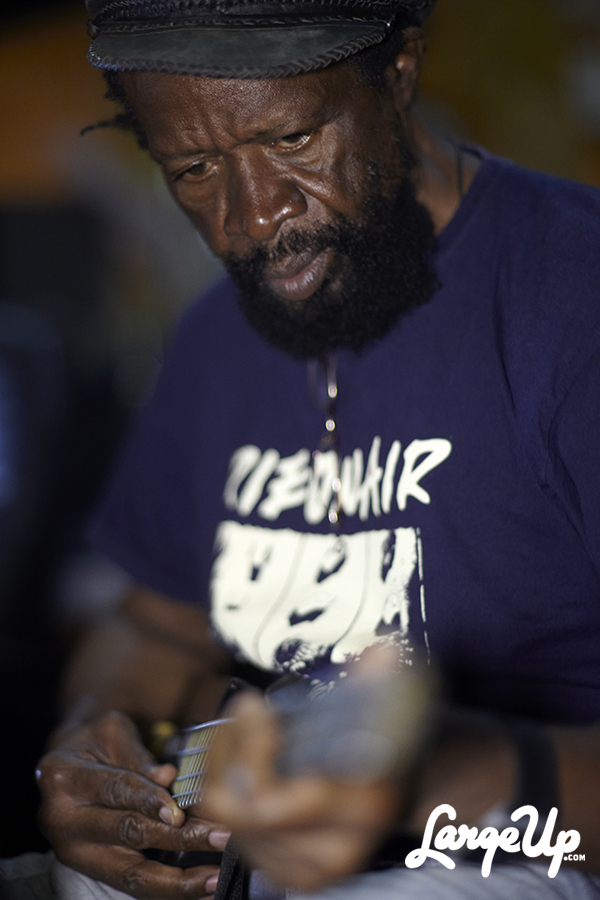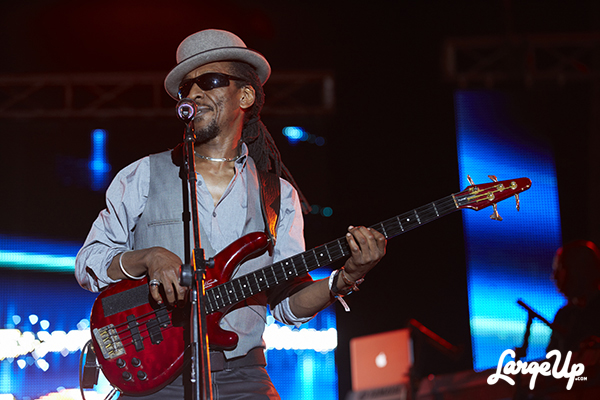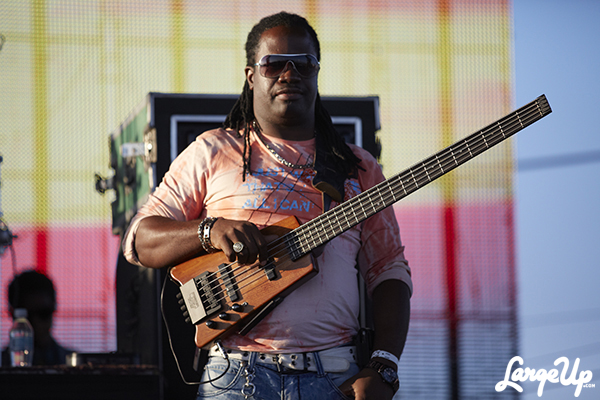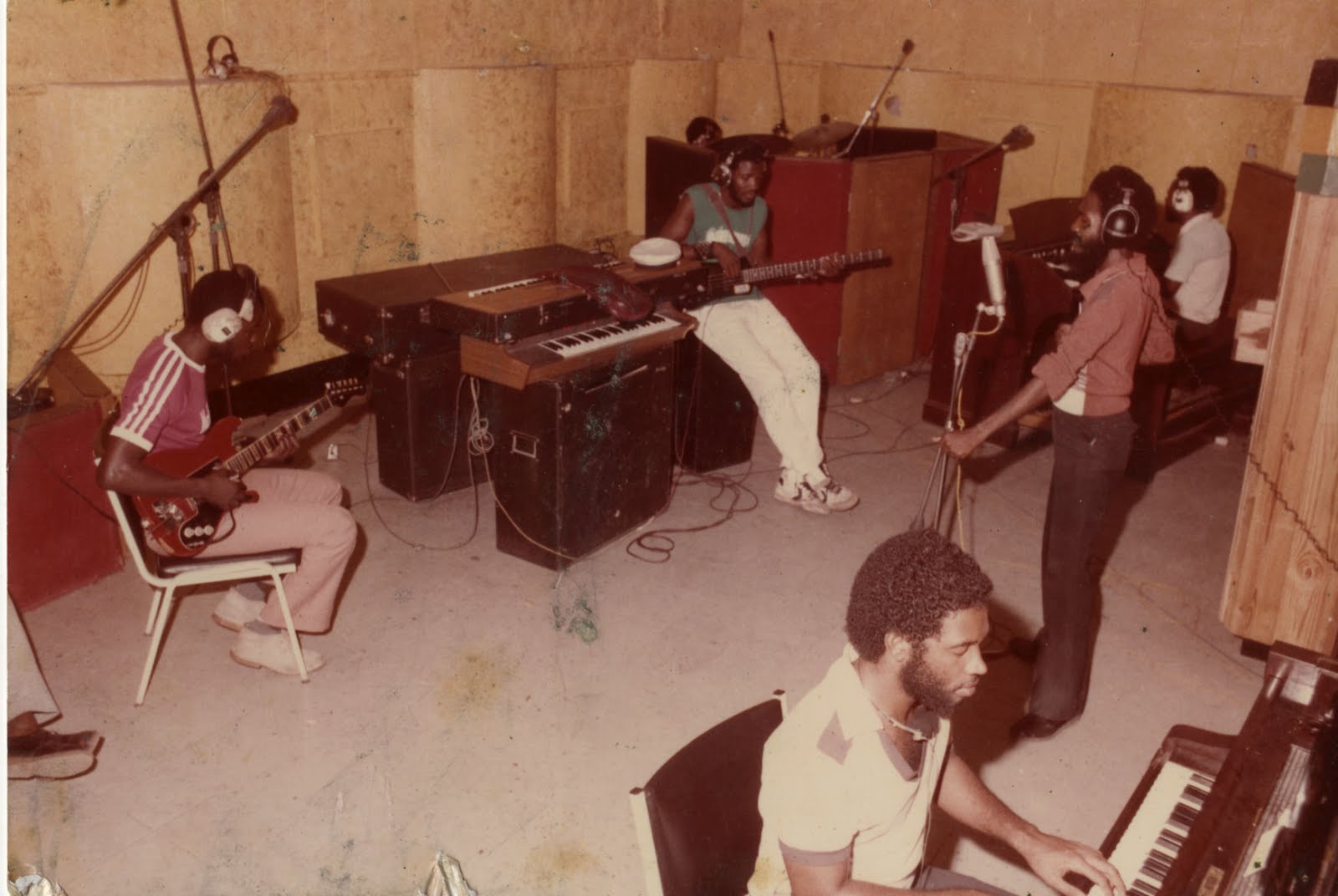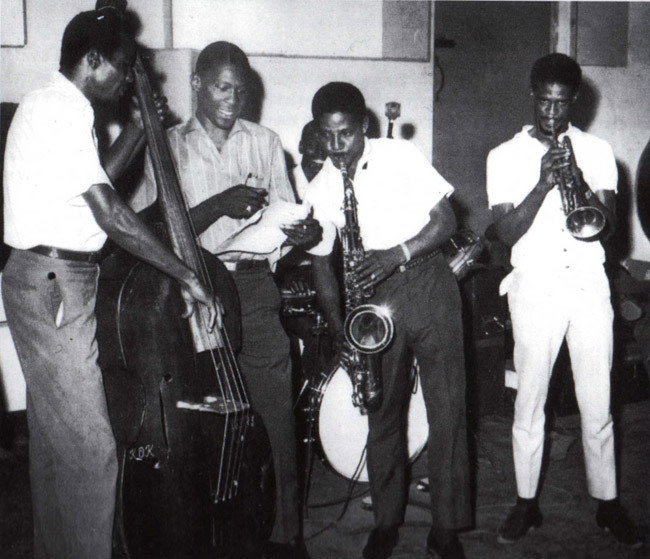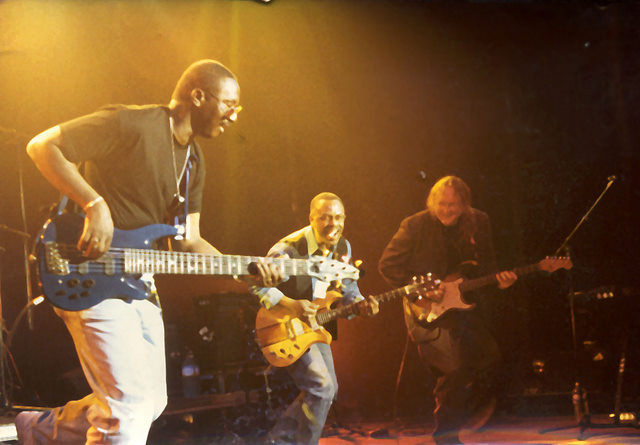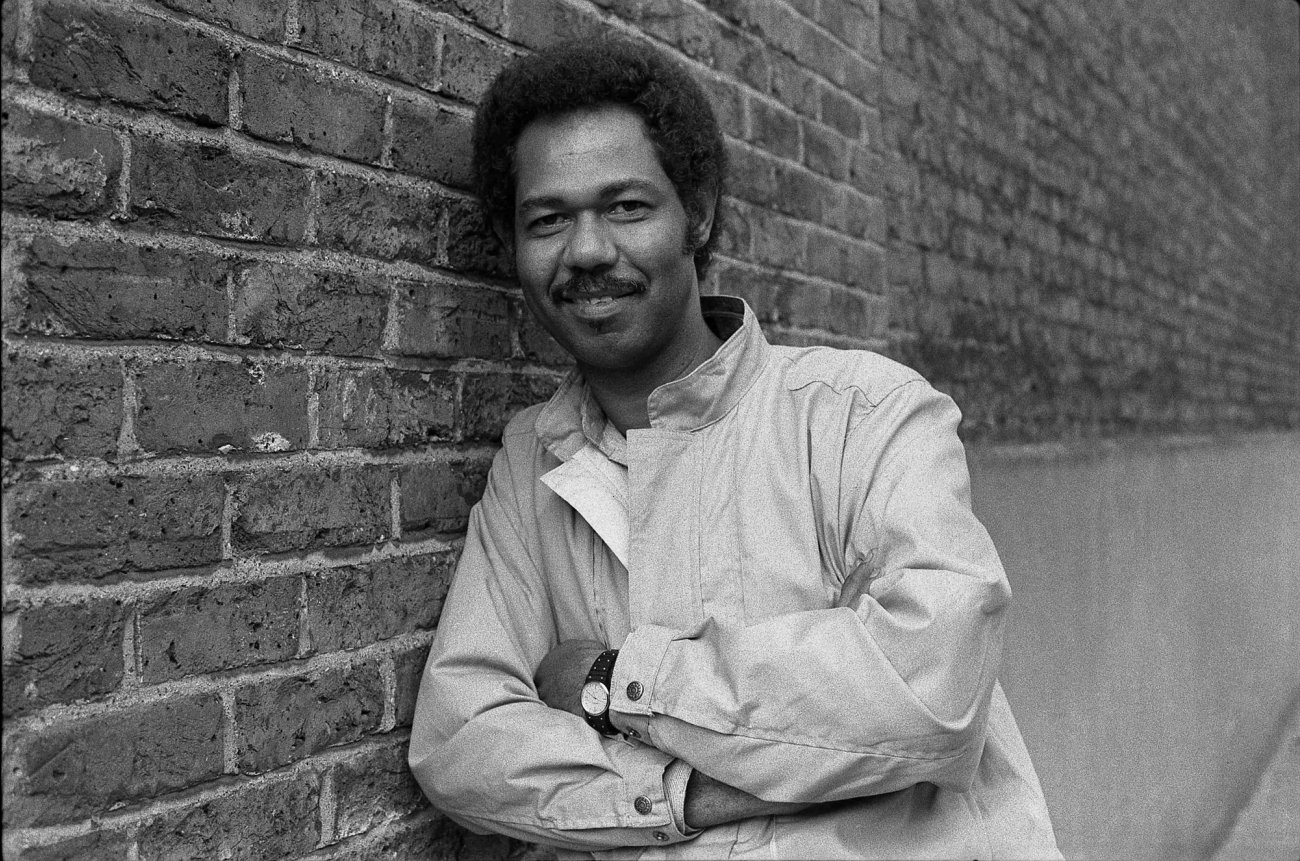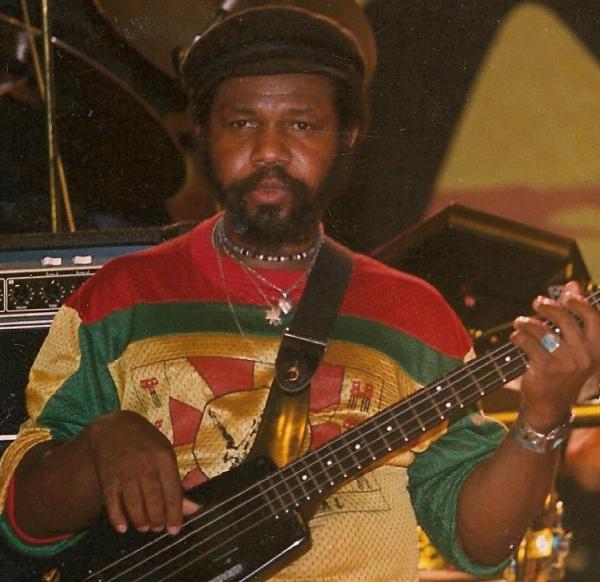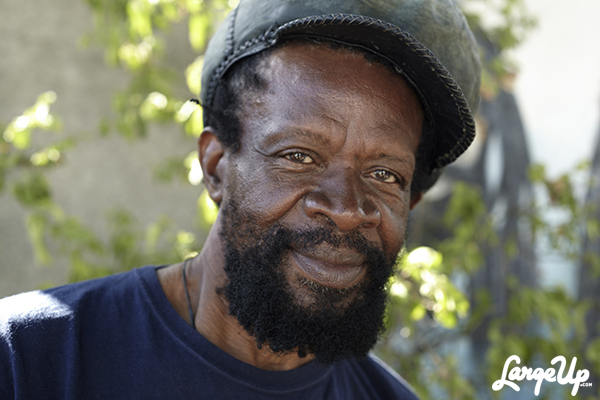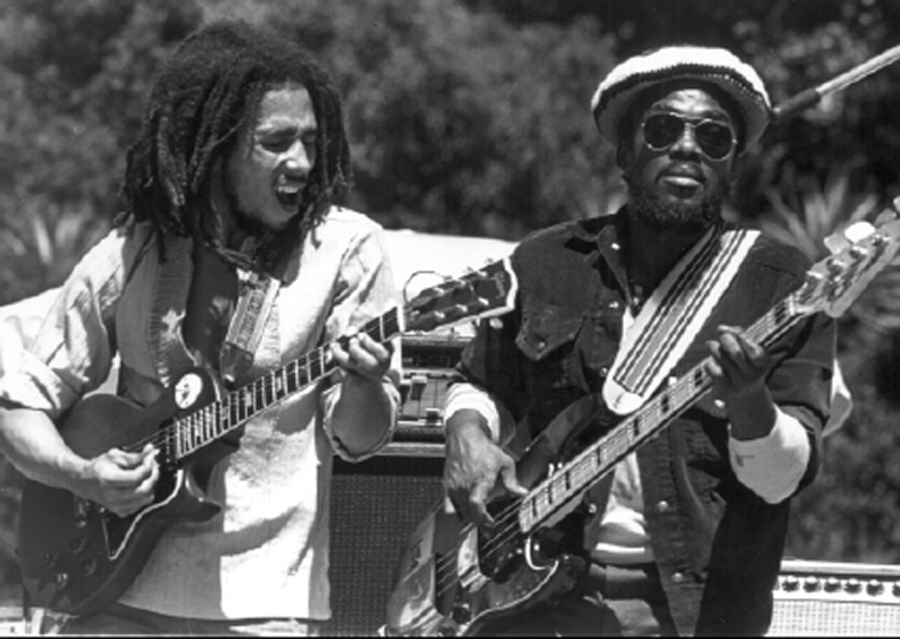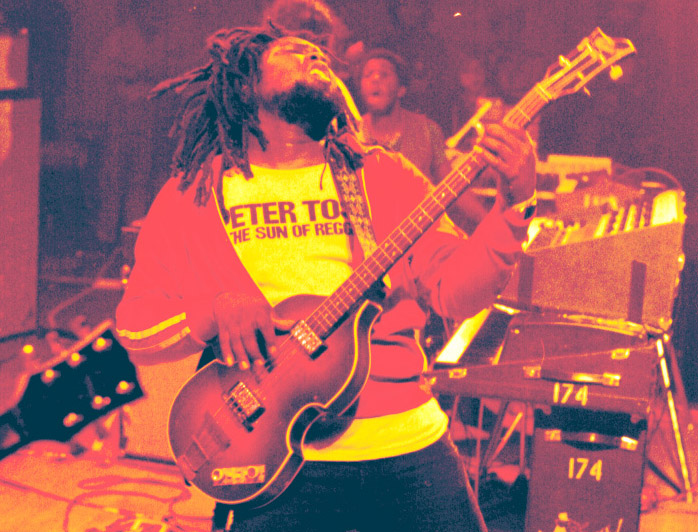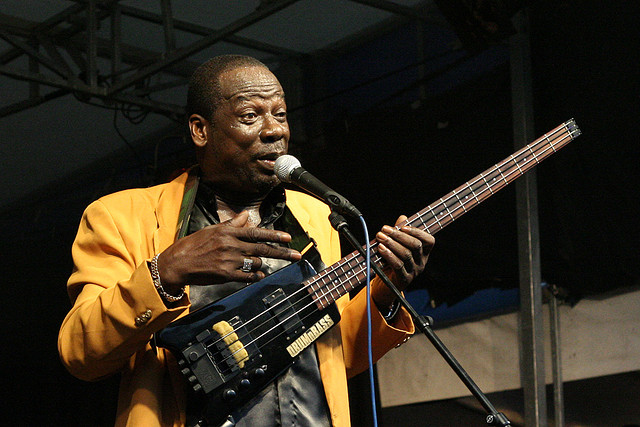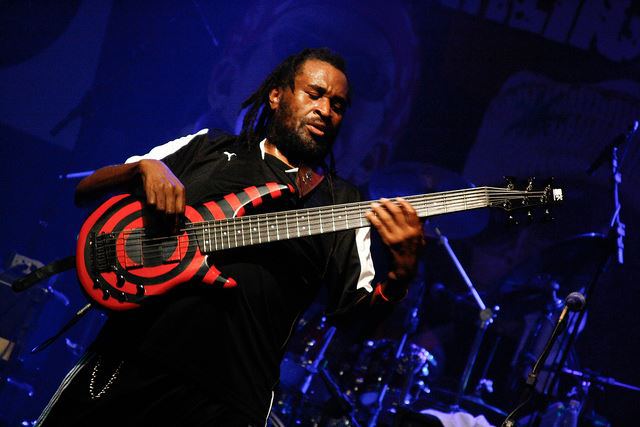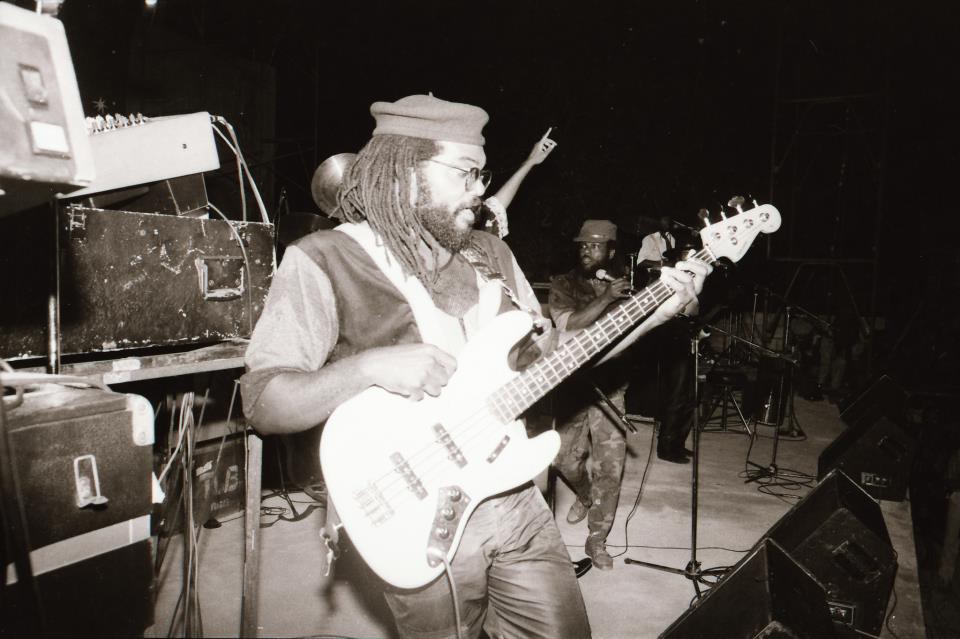7. Lloyd Brevett
For Lloyd Brevett, often referred to as the father of Jamaican bass, music was always a family affair: Brevett learned the instrument from his father David, a bassist who lead a jazz big band in the ’40s and ’50s. Known for his emotive, walking bass style, which appears laid-back and punchy all at once, the younger Brevett developed a new Afrocentric Jamaican sound by fusing elements of Cuban music forms with Jazz.
The Skatalites were only together for a year and a half after forming in 1964 (though they’ve continued to re-emerge in some form periodically up until the current day, albeit without late trombonist Don Drummond) but, during that time, Brevett defined the ska bass sound, playing on an upright acoustic bass, as the band backed a young Wailers and Lee Perry, among others, while releasing their own classic instrumentals.
Embracing Rastafari at a pivotal point following Jamaica’s independence in 1962, the Skatalites were in a unique position to create popular music with a foundation in a spiritual realm. As such, their music represents the first instance in which the bass effectively replaced a drum sound, as Burru and Nyabinghi riddims were being reworked into a popular format.
Though Brevett never learned to read music, he continued to play in the years after the band dissolved, taking on session gigs at Studio One. His first production effort, 1975’s African Roots, brought the Skatalites together with the Sons of Negus and guitarist Ernest Ranglin at Black Ark studios for a more classically reggae sound. Watch Brevett live with the Skatalites below, and listen to one of his and Drummond’s most distinctive basslines on “Man In The Street.”

